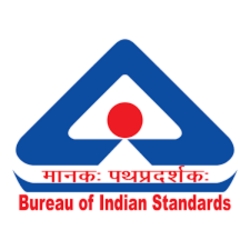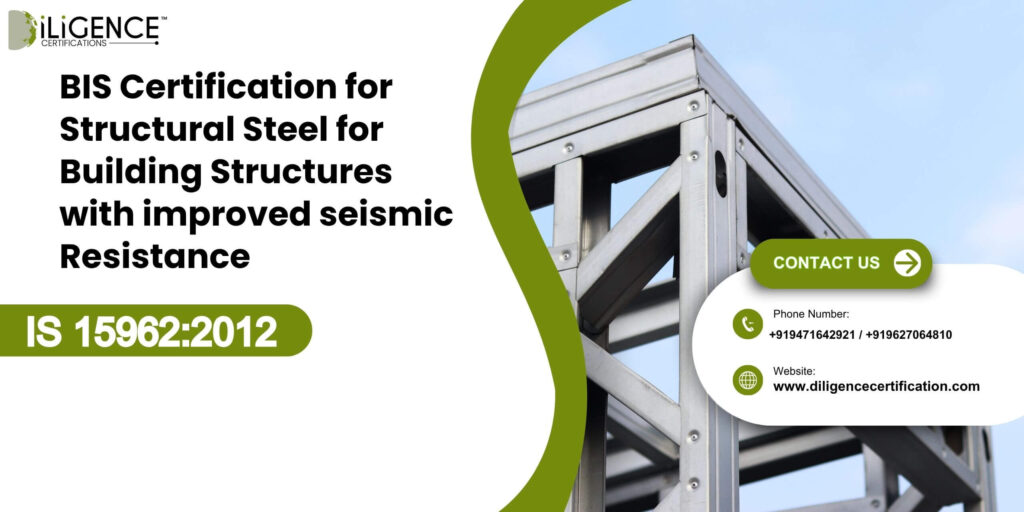- BIS Certification under IS 15962:2012 confirms steel is suitable for seismic-resistant building structures.
- The standard guarantees that the material has controlled chemistry, ductility, and yield-to-tensile ratios within the safety range.
- This certification is being mandated for large-scale and tall-building type of projects.
- The procedure is all about sampling, audit, records verification, and visits at irregular intervals.
- Certified manufacturers gain better market access, fewer rejections, and stronger credibility.
Introduction

A few months ago, a steel supplier in Pune called me after losing a hospital project simply because his material didn’t carry the BIS Certification for Structural Steel for Building Structures with Improved seismic Resistance under IS 15962:2012. Everything else about his product was acceptable, yet the absence of this specific compliance stopped the entire order. That situation is becoming common as builders, insurers, and consultants prioritise verified seismic-resistant materials over generic grades. India’s high-rise and infrastructure projects now expect structural steel that can withstand real seismic stress, not just pass routine strength tests. This certification has become the line between acceptable supply and automatic rejection. Bureau of Indian Standards
What is IS 15962:2012?
IS 15962:2012 specifies in detail the respiratory, mechanical, and chemical characteristics as well as the performance of steel for use in structures resistant to earthquakes. The prescription highlights the necessity for the material to be capable of energy absorption, safe deformation, and maintaining its integrity when subjected to loading arising from an earthquake.
Key Points:

- Detail the parameters of ductility and yield–tensile ratio that affect the performance of the structure during an earthquake.
- Outline the limitations of chemical compositions and carbon equivalents to ensure good weldability.
- Describe minimum physical requirements like tensile strength, elongation, and impact toughness to be met.
- Provide for identification from the records of the heat number and good marking. ISI MARK
- Is steel conforming to this specification a first choice for construction of buildings in which a disaster can endanger life, such as hospitals, schools, high-rises, and public infrastructures
Why is BIS Certification Mandatory
BIS Certification is necessary to demonstrate that the structural steel utilized in buildings affected by earthquakes complies with the very strict safety and quality requirements of IS 15962:2012. It is a tool to protect the projects against failures of the materials, meet the requirements of the regulations and tenders and give the confidence to engineers, insurers, and developers.
Key Points:
- It verifies that the steel complies with the seismic performance requirements tested by BIS.
- Steel suppliers to the government and large private projects must have it.
- Stops unsafe or non-standard materials from being delivered to construction sites.
- Offers legal conformity and lessens project liabilities.
- Makes it easier for the trust to be shared between the builders, consultants, and insurers.
Importance and Benefits of BIS Certification
| Importance | Benefits |
| It is a requirement that the steel used in construction must follow the seismic safety standards as per IS 15962:2012. | During earthquakes the risk of structural failure is greatly reduced. |
| It is compulsory for government, infrastructure, and high-rise projects. | Manufacturers are allowed to access premium tenders if they qualify with this certificate. |
| Provides verified material quality and consistency | Minimises site rejections and fabrication issues |
| Reduces the possibility of local rejection and difficulties in the fabrication process. | Supports builders and consultants in avoiding penalty charges due to non-compliance. |
| Enhancement of trustworthiness with clients and insurers. | The production of the material is traceable and follows regulated |
Step-by-Step Process of BIS Certification

Step1:Documentation
- Collect required business and product documents
- Ensure compliance with BIS standards
- Prepare technical files and product details
- Verify authenticity of all submitted records
Step2:Product Testing
- Send product samples to a BIS-recognized lab
- Conduct tests as per relevant Indian Standards (IS)
- Obtain an official test report
- Fix issues if the product fails and retest
Step3:Application Submission
- Fill out the BIS registration form online
- Upload documents and test reports
- Pay the required government fees
- Track application status on the BIS portal
Step4:Scrutiny and Inspection
- BIS reviews documents and test reports
- Factory inspection may be conducted (if applicable)
- Clarifications or additional documents may be requested
- Compliance is verified before approval
Step5:Grant of License
- BIS issues the registration certificate
- Unique R-number or license number is provided
- Manufacturer can affix the BIS mark on products
- Renewal required as per BIS validity timeline
Documents Required for BIS Certification
| Category | Documents Required |
| Business Documents | Business license/registration, ISO certificate, organizational details |
| Manufacturer Details | Factory layout, process flow chart, machinery list, production details |
| Product Documents | Product specifications, component list, user manual, model details |
| Testing Documents | Test report from BIS-recognized lab, sample details, test request form |
| Legal & Compliance | Authorization letter, brand ownership proof, trademark certificate (if any) |
| Import/Foreign Manufacturer (If applicable) | AIR (Authorized Indian Representative) details, contract agreement, overseas manufacturer documents |
Timelines, Costs, Validity & Renewal
- Timelines: Usually from 20 to 30 days, with only 7-15 days for the testing.
- Costs: The cost of the government and the test varies depending on the product. There can be some additional charges though.
- Validity: The validity period is 2 years in most situations.
- Renewal: The renewal is done before the expiration; there should be updated documents/tests; the renewal
Why Choose Diligence Certifications
- Expert team with strong BIS and regulatory knowledge
- Fast, streamlined processing to reduce approval delays
- Accurate documentation and testing coordination
- Transparent guidance with clear communication
- High success rate and complete end-to-end support
Conclusion
Such a certification has more or less become a necessity in any project that is coherent with the notions of safety, compliance, and durability over time. A steel product certified in accordance with the standard is increasingly being demanded by developers and consultants as a way of risk mitigation in connection with earthquakes, thus ensuring predictable behaviour during seismic events. Those who produce the steel and get the certificate can count on an easy way to be accepted in big tenders and get the confidence of the buyers strengthened. Should you require expert assistance in handling your paperwork, testing, or preparing for the audit, Diligence Certifications will be there for you throughout the entire BIS approval journey.
Frequently Ask Questions
What is IS 15962:2012?
It is basically a manual in India that tells you how to make steel resistant to earthquakes. The document provides the content of the steel and its strength that is required.
Why would you want your steel to be BIS certified?
One of the main reasons to acquire a BIS certificate is to assure that your steel will not break during an earthquake. The certificate serves as a safety measure that keeps buildings from collapsing. Also, you are commonly required to have it in government projects building.
Where is IS 15962:2012 steel needed?
Such a steel should be used in constructing any kind of structure that will be subjected to an earthquake. That is to say tall skyscrapers, hospitals, schools, and government-funded buildings.
What do they check in IS 15962:2012?
The check of the steel includes: the chemistry of the steel (especially carbon), the tensile strength, the elongation, the bending property and the impact property.
Why should steel makers get BIS certified?
Being certified can help a business to: get a better access to big projects of, improve its image, lessen the wastage of steel and increase customer attraction. At the same time, engineers and insurance companies will have higher trust in you.
How long is it to get BIS certified?
Normally, it is about a month or so. Testing of the steel takes one to two weeks.
What do you need to apply?
Some of the necessities are: business info, factory plan, production details, product content, testing certificate from the lab and brand name authorization. If your company is not in India, you need to submit some additional forms.
Will they check my factory?
Yes, the BIS can pay a visit to your factory. They are there to inspect your production process, machinery and quality control procedures.
How long is the BIS valid for?
Generally, the certification lasts for two years. Later on, the renewal will be done with new paperwork and testing.
Can someone help with getting BIS certified?
Sure, there is a service that can take care of your certification needs.








 BIS Certification
BIS Certification
 CDSCO
CDSCO
 CPCB
CPCB
 LMPC
LMPC
 WPC Approval
WPC Approval
 Global Approvals
Global Approvals
 TEC
TEC
 ARAI
ARAI
 BEE
BEE
 ISO Certification
ISO Certification
 DGCA Certification
DGCA Certification
 NOC For Steel
NOC For Steel



















 Business Registration
Business Registration















 Legal Services
Legal Services
 Trademark Registration
Trademark Registration
 Copyright Registration
Copyright Registration
 Patent Registration
Patent Registration















































